7 Reasons Why Budgeting Is Important

If you are financially independent, then keeping track of and managing your own finances is a crucial skill to learn and develop. Budgeting is a huge part of this, and it can take some time to really master.
You must put in the time to learn to budget if you don’t already know how. It pays off in the long run and helps you avoid running out of money or spending money that you don’t have.
As an affiliate partner of various brands and sponsored content, HerPaperRoute may earn commission on qualifying purchases. Disclaimer
When you are learning how to budget, you can try different strategies and methods to see which suits you and your lifestyle best. It might take some time to find a budgeting style that works well for you, but try to be patient.
You may be wondering why budgeting is important? Budgeting is simply a spending plan for your money. It allows you to keep track of all your expenses and allocate money for your important goals.
Everyone needs to learn how to budget, despite your budgeting strategy. Below I’ll go over some of the big reasons why budgeting is important and relevant to you.
What Is Budgeting, Exactly?
In short, budgeting is creating a plan for spending your money. Once you have created a budget, you should be able to determine how much money you have access to within a set period of time.
Then, you can use this amount of money to determine your budget and see how much you will spend versus save. You can budget to manage your own personal finances, as well as for a company, event, or another purpose.
7 Top Reasons Why Budgeting Is Important
Below are some of the most motivating reasons to keep a budget. Some of the reasons may not be as motivating as others in your situation but each of them hold some merit no matter your family situation.
1. Budgeting Helps You Avoid Running Out Of Money
If you have a budget for a particular period, you can use it to forecast your future expenditures, too. While it’s useful to have a budget figured out for the next month, it’s even better to be able to project how much money you might need for the next six months or longer.
If you anticipate that your income is going to be stable or consistent for that period, then you can use the budget you have already developed to ‘forecast’ your income, savings, and expenditures for as long as these figures remain consistent.
When doing so, you should factor in any potential changes or fluctuations, as well as unexpected expenditures. Sometimes, things come up that we don’t anticipate, so it’s important that you give yourself some wiggle room in your budget.
You might find yourself in a position where you need to spend a lot more money than you normally would, you should factor this in when forecasting your expenditures. One of the best ways to use forecasting or budget planning is if you have a large expenditure coming up.
You can anticipate how much this is going to cost in advance, and then set aside some of your income each month in order to be able to afford it. This is the safest and easiest way to prepare yourself for large purchases.
Another name for saving up money for specific events is called sinking funds. Here is an extensive list of sinking funds to help you make sure you aren’t forgetting anything.
Plus, it is relatively easy to achieve once you know how to do so. Information like this is just one reason why budgeting is important.
2. You Can See If Your Lifestyle Is Realistic
A common challenge for financially independent people is spending too much money without realizing it. It’s not uncommon for people to eat out frequently and spend excessively on things that are not necessary.
Even if you don’t make a lot of money, it’s still possible to budget. Here are some tips about minimum wage budgeting that can help even the tightest budget.
By budgeting, you can quickly find out if this is something that you do and change your spending habits in order to be able to save more or put your money elsewhere. One way to keep track of your expenditures, for this reason, is to write them down or use a budgeting notebook.
Related: Here are my favorite budget planners reviewed
Certain apps have been designed to help you manage how much money you spend. This makes it very easy to understand the types of expenditures you have and how necessary or useful they are.
Banks also have apps with functions that help you manage this. On top of that, you can setup your bank account to monitor your money in such a way that you can only spend it with prior authorization.
This makes budgeting much easier since you don’t have to be disciplined every time you go shopping. You can set up the app in advance, and this is a way to guarantee that you don’t spend more money than you actually have.
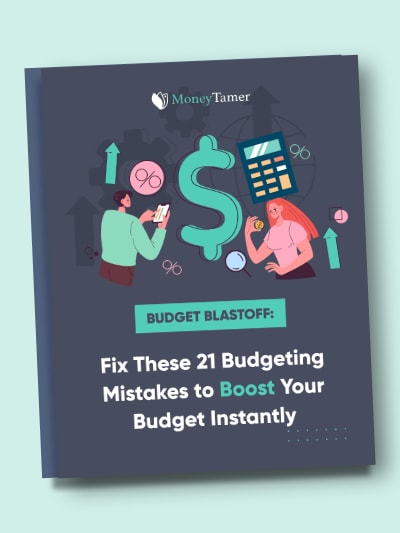
3. Budgeting Keeps You On Track
If you have any major financial goals, then budgeting should be a crucial part of your strategy to achieve them. By budgeting wisely, you can ensure that you don’t spend outside of your means, while you work towards your goal.
For example, if you want to have enough money within five years to get a mortgage, you likely need to start saving as much as possible. You might find that you simply aren’t saving enough from month to month to make much progress towards your goal, despite your best efforts.
In a sense, this is a good thing because it means you can adapt your lifestyle or maybe even get a second job to help you save up enough. Also, you can use your budget to come up with new goals if you don’t have any. For more ideas, check out these intermediate financial goals.
You might be considering purchasing a new car, for example, and not feel sure about what type of vehicle is within your means. By establishing a budget, you can figure out how much you can save up within a certain timeframe, as well as, what type of car you can afford.
This is a great way to set realistic expectations, especially for expenditures or goals that you aren’t 100% set on yet.
Want somewhere to track your money across all accounts? Grab this free financial dashboard to track your savings, retirement, net worth, and more!
4. Budgeting Keeps The Pressure Off
Many people find finances, to be an overwhelming subject. The idea of not having enough money to pay the rent or bills is enough to stress anybody out.
As such, some people avoid addressing or thinking about the subject altogether, only dealing with it when they have to. They may look at their bank account and see a balance they aren’t totally happy with and then avoid looking again for weeks.
Budgeting is actually a great way to avoid this. If you budget properly and keep track of your income as well as your expenditures, you shouldn’t have any nasty surprises when it comes to your finances.
You can know what to expect and when to expect it. This is especially true if you combine a frequent, consistent budget with forecasting or planning.
By planning out your expenditures in advance and setting aside the right amount of money ahead of time, you can ensure that you have enough to pay for these expenditures unless something unexpected comes up.
You can easily avoid living beyond your means. Plus, you will not feel like you are always having to stress over whether you can make ends meet.
5. Budgeting Helps You Feel Content
Money is arguably one of the touchiest subjects you can talk about with another person, whether they are a stranger or a close family member. This is due in large part to comparison and discontentment.
People compare their own situation with that of others and feel inadequate or inferior. These feelings can lead to jealousy, envy, or even people trying to live beyond their means in order to have the same lifestyle as others.
Budgeting is a great way to avoid this, and to feel more satisfied with what you have. When you see a concrete, realistic breakdown of how much money you have access to, it’s much easier not to compare yourself with others and what they have.
Instead, you can see how far your own money goes in your own life, and how much of your needs you are able to cover without assistance from anyone else. You can also think of the act of budgeting as a great way to become more mindful of your financial situation.
When you sit down to focus on and plan around your finances, you are not thinking about what other people have. The emphasis is on you, your family, what you can afford, and what you need to save up for.
By thinking this way, you make it a lot easier not to worry about what others are doing and not feel jealous or envious.
6. Budgeting Helps You Avoid Being In Debt
Borrowing money is one of the riskiest things that you can do with your finances. Debt is often a cycle that is incredibly challenging to come out of once you’re in it.
This is why you should try to avoid going into debt at all costs. Budgeting is a great way to achieve this. If you budget properly, you should have a clear understanding of your finances and what you have access to.
Related: Here are tips for paying off your debt quickly.
This limits the risk of your overspending, which is one of the most common reasons people go into debt to begin with. Many people choose to go into debt to make larger purchases too. You can also use budgeting to avoid this.
By planning out how much money you need to buy something, you should be able to clearly see how much of your income or savings you need to put aside to be able to afford it. You can also forecast how long it should take for you to have enough money for your purchase.
Then, if needed, you can adjust your lifestyle and expenditures. This is another clear reason why budgeting is important.
7. Budgeting Helps You Plan For The Worst
It might not be fun to talk about, but all of us experience disasters or unexpected events in our lives at some point. Often, these are expensive to manage and respond to, especially in the immediate aftermath.
This is why it’s so important that you have some money put aside for such events. This will allow you to afford any costs you might need to cover unexpectedly.
Budgeting is an incredibly important skill for any financially independent adult, regardless of their background or circumstances. Everyone can benefit from organizing their finances better.
Having a better understanding of your income can help you to plan for larger purchases or expenses in the future. This minimizes the pressure and stress that can come with finances in general and can practically become second nature once you get used to it.
Some Methods For Budgeting
Regardless of your income or background, you should be able to find some way to implement budgeting into your financial planning. Even if you live paycheck to paycheck, developing a budget can make it easier for you to understand exactly how much money you have access to within a particular timeframe.
This understanding also helps you to see if you’re living within your means. Depending on your goals and lifestyle, you can try budgeting by breaking down your income and expenditures into different ratios.
One common tactic is to allocate 50% of your income to necessities, 30% to incidental expenditures, and 20% to your savings.
For example, your rent, food, and other bills should not take up more than 50% of how much money you earn. If you plan your spending this way, you can ensure that you have enough income left for saving and occasional spending (going out for dinner, going to the movies, etc.).
You don’t have to hold fast to this ratio, though. One of the great things about budgeting is that you can adapt your approach so that it suits you best.
If you are trying to save up as much money as possible, then you can plan to put more of your income into your savings than 20%.
Conversely, if you already have a decent amount of savings or would prefer to live a bit more lavishly, you can spend more of your money on incidentals. For a more in-depth breakdown of allocations, read this post on recommended household budgeting percentages.
7 Reasons Why Budgeting Is Important – Conclusion
If you haven’t tried budgeting before, then what are you waiting for? As explained above, you now know why budgeting is important. There are plenty of fantastic reasons to start budgeting ASAP.
Try some different methods until you find something that works for you. It shouldn’t take long before budgeting feels almost effortless. You’re unlikely to regret it!
Related Articles:
- Easy Guide To Personal Financial Literacy
- Best Way To Keep Track Of Bills So You Never Pay Late Again
- Essential Benefits of Budgeting That You Haven’t Thought Of Yet
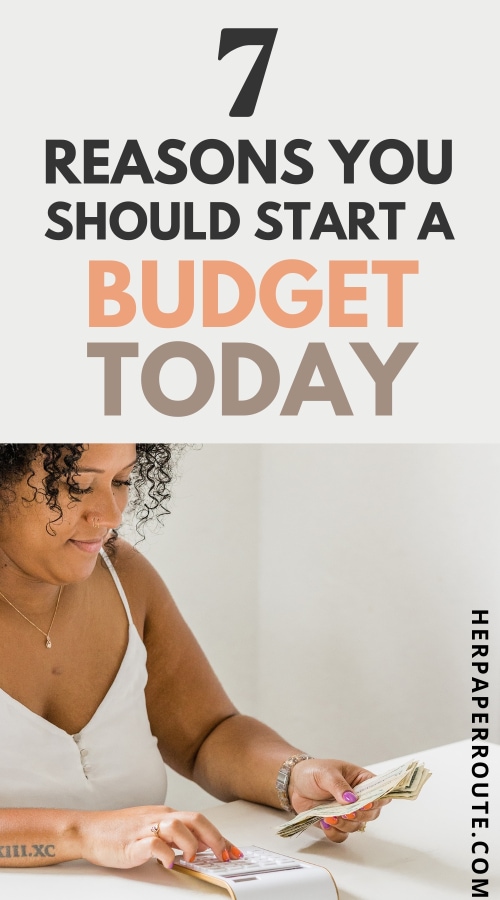
Follow along on Instagram!


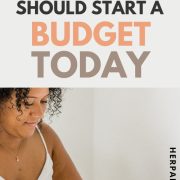



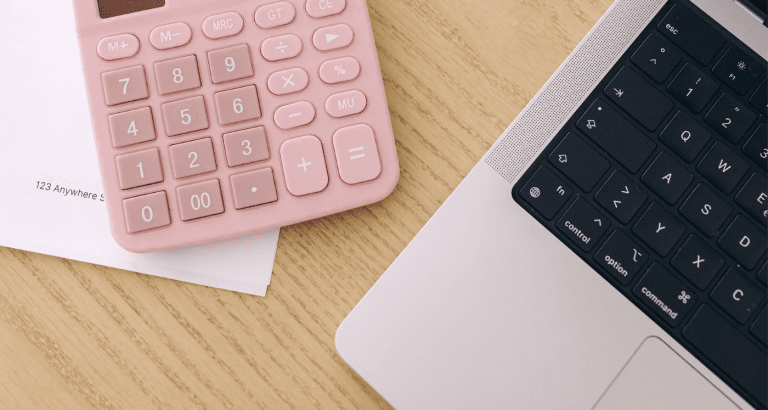

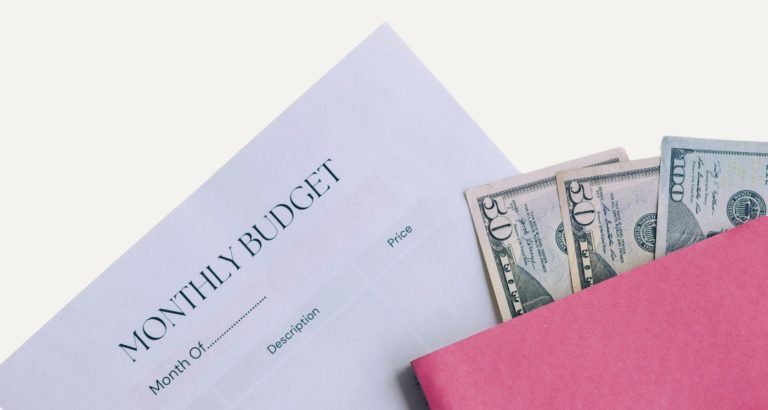


![9 Best Types of Personal Budgets [How to Choose the Right One for You] 13 Hand writing in notebook about the Best Types of Personal Budgets](https://herpaperroute.com/wp-content/uploads/2021/11/Best-Types-of-Personal-Budgets-768x410.jpeg)